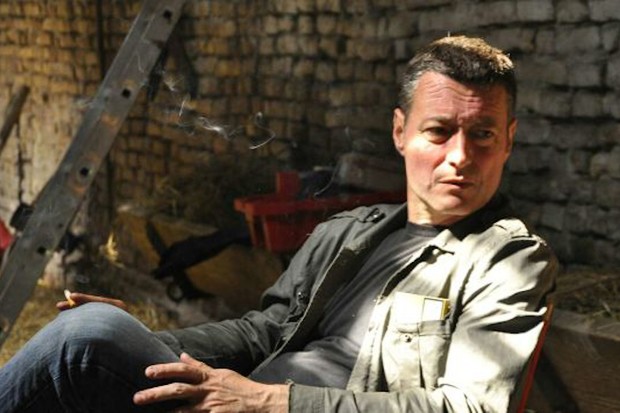“I am very proud that the six republics of the former Yugoslavia are participating in the production”
– With his new film, the Serbian director presents a satire on religion reflecting the essential social themes of the Balkan countries

Heavens above (+see also:
film criticism
trailer
interview: Srđan Dragojević
film profile) by Srđan Dragojević is competing this year Locarno Film Festival. In three episodes he satirically addresses some important philosophical topics that determine social interactions and are closely linked to religion. We spoke with the director about his inspiration, the concept of the film and some production details.
Cineuropa: You say you were inspired by the writings of French author Marcel Aymé.
Srđan Dragojevic: I read his stories many years ago, even before I started at the film academy. Then I forgot about them, but five years ago I found them and reread them. I was tired of making social dramas and crime films and I took the opportunity to adapt Aymé’s big fantasy and science fiction ideas. I chose three dark, surreal comedies, I really like them. I guess the topics they cover particularly resonate with me because I’m fifty-seven now and as you mature, you tend to be confronted with bigger questions related to faith and death. Also, my sister is an Orthodox nun and we talked about that a lot as well. I think a lot about religion.
Why did you choose to use three different time periods?
The original writing takes place in the 1920s and 1930s in the French bourgeoisie. I wanted to adapt it to a society that was vaguely reminiscent of Yugoslavia rather than Serbia. I chose to set the stories between 1993 and 2026 to connect them to the transition from socialism to Christianity that actually happened and is still continuing in Eastern European countries. This is a very interesting and bizarre process, because there seems to be a parallel with the early centuries of Christianity, when pagan rituals coexisted with Christian rituals. New rules and new religious habits arise and clash with socialism. I wanted to take a comedic approach to this.
How did you develop your characters? And did you already have the actors in mind when writing the roles?
Character development is a process that begins when the script is written and does not take into account real-world conditions or specific actors. Then when I start to imagine the film, I find myself faced with real locations and market offers in terms of actors. Ultimately, you have to adapt to that. For the actors, it was important that everyone was convincing across the three decades of the stories.
What is the most important concept in the film and the main topics you want to focus on?
I wanted it to be like a puzzle and raise questions using different metaphors. I wanted to approach religion and try to understand certain aspects of it myself and confront the notions of the god of love and the god of revenge, for example. I am also interested in miracles and temptations. We live in an era that has its own golden calf, which can also be found on the commercial side of art. And of course, as a filmmaker, I’m also concerned with the question of why we make art. For money, fame and recognition?
It’s a fairly archaic and brutal life that you depict.
This is a reality for the Balkans. You get used to it, it’s a daily experience, but it can still start to bother you. But showing life as anarchy is normal for Eastern European directors. Even though the film is fantastic, I consider myself a realist. I’m not running away from reality. There are probably some aspects of the film that the Balkans perhaps understand better than others. An example is in the first episode, the man’s wife receiving a halo. His character is a metaphor for the media. The citizens of the Balkans are constantly confronted with the media, it will eventually drive them crazy. The media is filled with nationalist propaganda, showing politicians constantly demonstrating their power and manipulating public opinion.
Was it difficult to obtain financing for the film?
In fact, it took more time and energy than my other films. But I am very proud that the six republics of the former Yugoslavia are participating in the production. Already for The parade (+see also:
trailer
film profile), we had five, but now there are all of them. This is important to me because I see it as a great market, offering incredible creativity and many talented professionals.

